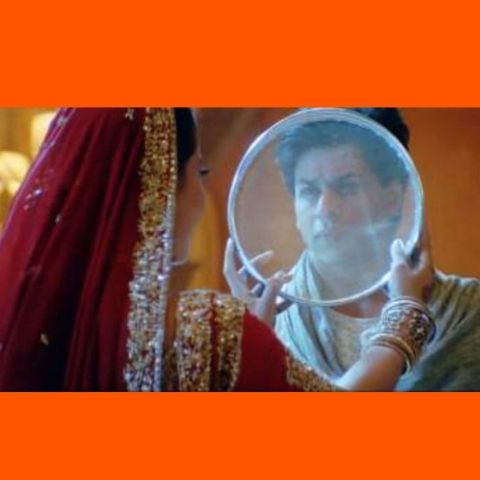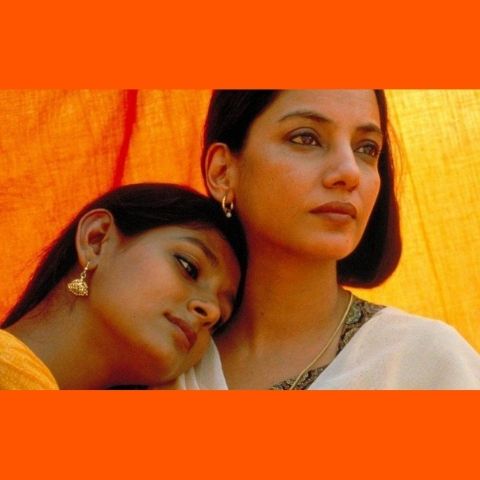How I'm reimagining Karwa Chauth this year: A Gen Z feminist perspective
November 3, 2020
By Renuka, Contributor
There was once a woman who grew up with 7 brothers and no sisters. Her brothers loved her very much, and during her first Karwa Chauth, they saw how hungry and weak she was while fasting. To ease her discomfort, they used a mirror to shine light into her room and deceive her that the moon had risen, prompting her to break her fast. Soon after, she received news that her husband had died. She begged Lord Shiva and Goddess Parvati to bring her husband back, which they did with the condition that she respects the rituals of Karwa Chauth going forward.

photo credit: Calendar Labs
This is a story the women of my family always recount during Karwa Chauth (pronounced kuhr-vuh cho-th), a Hindu festival practiced primarily in Northern India. During Karwa Chauth, wives keep a vrat (fast) from sunrise to sunset to wish for their husbands’ long lives. The word “karwa” refers to a pot of water that is used in this ceremony and “chauth” means “fourth,” as Karwa Chauth falls on the fourth night after the full moon in the month of “Kartik” on the Hindu calendar.
The origins of Karwa Chauth are unclear. Some claim that women would fast for their husbands’ safe return from war. Others place the origin with a young newly wedded woman who looked for another married woman to befriend after she joined her husband in his home and the tradition of fasting together brought them in community.
When my family celebrates Karwa Chauth, we invite our cousins over to observe the rise of the moon, which signals the end of the vrat. The women hold a pooja (prayer ceremony) together where they pray for their husbands’ longevity and recount the earlier story about the young girl and her brothers. My mom will receive baina (a small gift of fruits, nuts, sweets, or trinkets) from the other married women in our family, as she is considered the mother-in-law to my cousins and they offer baina as a sign of respect. Then, the whole family enjoys a nice dinner together and we chat away the evening.

Karwa Chauth scene in Kabhi Khushi Kabhie Gham (2001)
Given that only women were expected to fast for Karwa Chauth, I grew up thinking that this was an outdated and misogynistic tradition.
It seemed unfair to me that only the women were expected to make sacrifices for their husbands’ long lives, but I had never really looked into the other meanings that this tradition can hold.
If we look at the actual actions that are being undertaken, sure. There is an argument that the women are being put in a subservient position without agency to eat or drink. However, there is an alternate lens we can use that highlights the ethos of this festival.
Fasting together, having pooja with one another, and sharing gifts with each other were some of the primary ways that Desi women throughout history could celebrate each other’s company and support each other. During Karwa Chauth, women would come together in companionship and bond together as kangan-saheli (God-friends) or dharam-behen (God-sisters), celebrating their lifelong unions to each other as much as the unions with their husbands.
This is parallel to the sentiments of women supporting women that we see thriving among younger generations today.
Karwa Chauth celebrates womanhood and the strength each woman holds, reminding us of the God in each woman. In the context of marriage, I believe we can reframe this tradition so couples can celebrate their partnership and wish for each other’s longevity while respecting its origins.
That’s what I think Gen Z is about — reimagining our culture in a way that feels relevant and reflects the growth our society wants to see.
I know that many younger couples have begun the tradition of both partners fasting for each other. There are also couples who have decided not to continue the tradition of vrat, but still use the day to hold a pooja together to pray for each other’s long lives and bring their families together.

Sita fasts her first Karwa Chauth in Fire (1996)
By giving each partner the agency to choose how they engage in the rituals of Karwa Chauth, we can honor our roots and make this day pertinent to the norms of our time.
We love women celebrating women.
We love celebrating love.
Karwa Chauth can evolve to signify those messages if we celebrate this festival in those ways.
About — Renuka recently graduated from UC Berkeley and now works at a consulting firm in San Francisco. She loves to explore the intersections between beauty, fashion, and identity, promoting a message of feminine power and body neutrality as a Desi-American. Find her on Instagram and TikTok at @looks.by.ren.
Cover photo credits: Pola Augustynowicz, @polaugustnynowicz




